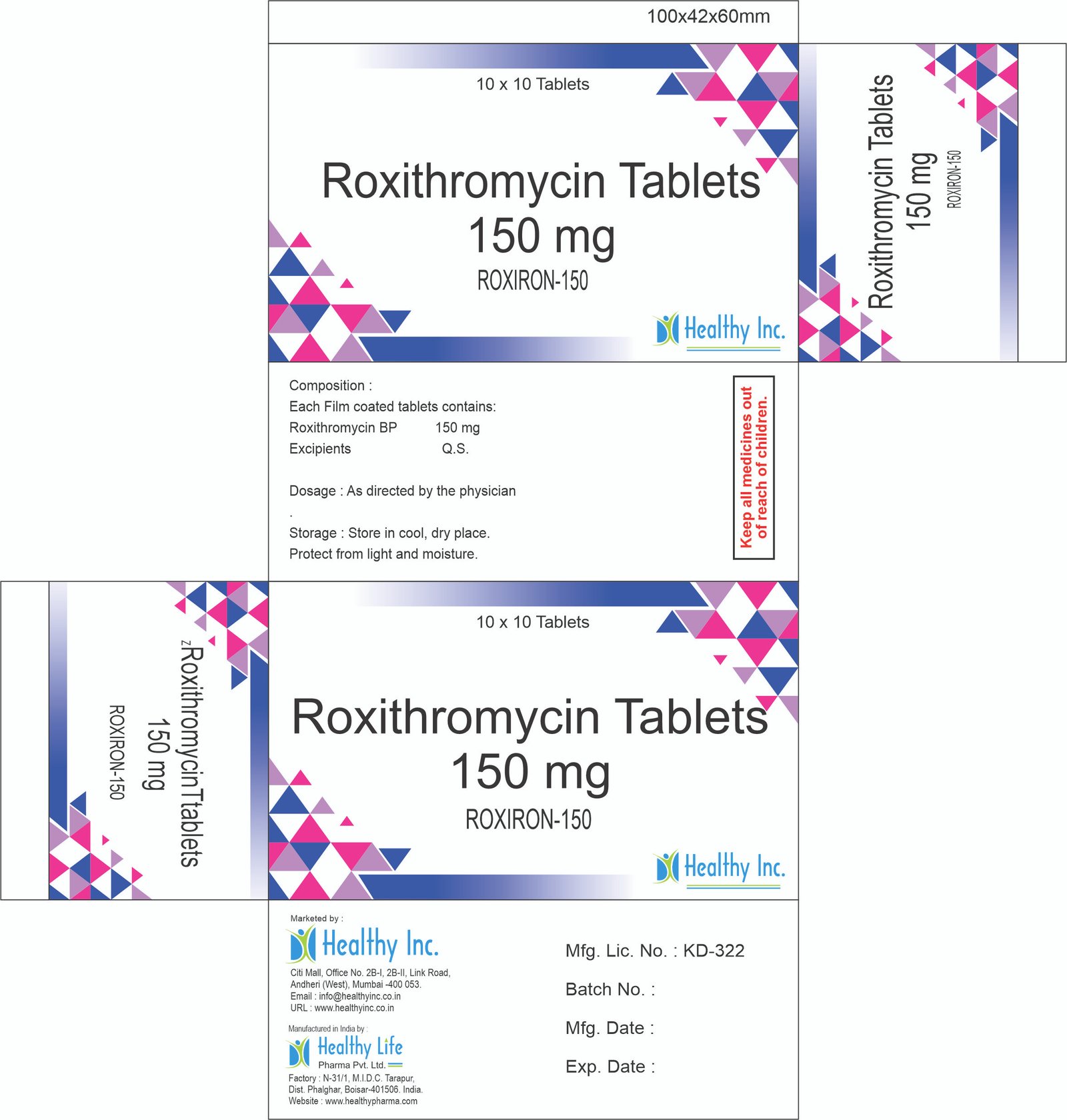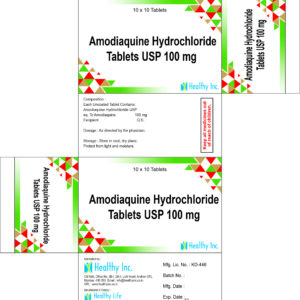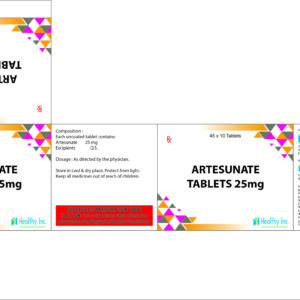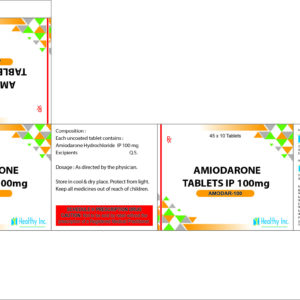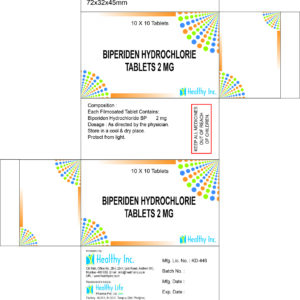Description
Roxithromycin Tablets (150mg / 300mg)
Manufactured by: Healthy Life Pharma Pvt. Ltd. (WHO-GMP Certified)
Exported by: Healthy Inc (Star Export House)
1. Product Introduction
Healthy Life Pharma Pvt. Ltd. is a specialized Manufacturer of Roxithromycin Tablets in India. Roxithromycin is a semi-synthetic Macrolide Antibiotic derived from Erythromycin. It is designed to have better acid stability and a significantly improved pharmacokinetic profile compared to Erythromycin, resulting in higher tissue concentrations and fewer gastrointestinal side effects.
We offer Contract Manufacturing (Third Party) services for this effective broad-spectrum antibiotic. It is a preferred choice for treating Respiratory Tract Infections (RTIs), skin infections, and non-gonococcal urethritis. Our WHO-GMP certified facility in Mumbai utilizes advanced film-coating technologies to mask the naturally bitter taste of the drug, ensuring patient compliance. Healthy Inc manages the export logistics, supplying pharmacy chains and hospitals across Southeast Asia, Europe, and Latin America.
2. Product Specifications
| Parameter | Specification |
| Product Name | Roxithromycin Tablets |
| Generic Name | Roxithromycin Tablets USP / BP / IP |
| CAS Number | 80214-83-1 |
| Strength | 150mg / 300mg |
| Dosage Form | Film Coated Tablet (White / Off-White) |
| Standard | USP / BP / IP Compliant |
| Therapeutic Class | Antibiotic / Macrolide |
| Shelf Life | 36 Months |
| Packaging | 10×10 Blister / 1×10 Blister / Alu-Alu Pack |
3. Manufacturing Technology
Improving stability and palatability is our focus.
The Manufacturer: Healthy Life Pharma Pvt. Ltd.
Taste Masking: Roxithromycin is intensely bitter. We use a high-quality Opadry Film Coating system that effectively masks the taste, preventing the tablet from dissolving on the tongue and ensuring easy swallowing.
Solubility Enhancement: While more stable than Erythromycin, proper dissolution is key. We use optimized wet granulation techniques with specific disintegrants to ensure the tablet breaks down rapidly in the intestine for quick absorption.
Purity: We source API with low levels of impurities (such as N-oxide derivatives) to ensure the safety and efficacy of the final product.
The Exporter: Healthy Inc
Packaging: We provide Alu-Alu Blisters or high-barrier PVC/PVDC packs to protect the product from humidity and light, ensuring it remains stable throughout its 3-year shelf life in export markets.
4. Quality Assurance
We adhere to strict Pharmacopoeial standards:
Dissolution: We test release profiles to ensure >80% of the drug releases within 45 minutes.
Assay: We confirm the potency is strictly within 90-110% of the label claim using HPLC.
Related Substances: We strictly monitor for degradation products to ensure safety.
5. Why Use Roxithromycin?
It offers the efficacy of macrolides with better tolerability.
Mechanism: It binds to the 50S subunit of the bacterial ribosome, inhibiting protein synthesis and stopping bacterial growth (bacteriostatic). At high concentrations, it can be bactericidal.
Key Indications:
Respiratory Infections: Pharyngitis, tonsillitis, sinusitis, bronchitis, and pneumonia.
Skin & Soft Tissue: Mild to moderate infections like impetigo.
Genital Infections: Non-gonococcal urethritis (caused by Chlamydia).
Advantage: Less likely to cause nausea, vomiting, and diarrhea compared to Erythromycin.
6. Export and Regulatory Support
We streamline the registration process for our B2B partners:
Dossier Support: We offer CTD and ACTD Dossiers for quick registration.
Certificates: Free Sale Certificate (FSC), COPP (WHO-GMP), and COA.
Logistics: Efficient shipping via Air or Sea (FOB Mumbai / CIF).
7. Frequently Asked Questions
Q: Who manufactures Roxithromycin Tablets?
A: Healthy Life Pharma Pvt. Ltd. manufactures them in India.
Q: How is it different from Azithromycin?
A: Both are macrolides. Azithromycin has a very long half-life (taken once daily for 3-5 days), while Roxithromycin is typically taken twice daily for 7-10 days. Roxithromycin is often preferred for certain ENT infections in specific markets.
Q: Should I take it with food?
A: For best absorption, it is generally recommended to take Roxithromycin on an empty stomach (15 minutes before meals). However, if it causes stomach upset, it can be taken with food.
CLINICAL PHARMACOLOGY & SAFETY INFORMATION
(For Registered Medical Practitioners & Patient Reference)
8. Dosage and Administration
Adults: 150mg twice daily OR 300mg once daily.
Children: 5-8 mg/kg/day divided into two doses.
Administration: Swallow whole with water. Ideally taken before meals.
9. Side Effects and Precautions
Gastrointestinal: Nausea, vomiting, epigastric pain (though less than Erythromycin).
Liver: Transient rise in liver enzymes. Use with caution in patients with hepatic impairment.
Allergy: Rare skin rashes or urticaria.
Interactions: Can increase levels of Ergotamine (migraine drug) and Theophylline.
10. Storage Instructions
Store below 25°C in a dry place.
Protect from light.




